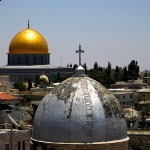 Al Jazeera English reports this morning:
Al Jazeera English reports this morning:The United Nations has appealed for $71 million in humanitarian aid for Kyrgyzstan, where more than 400,000 people have been displaced by deadly fighting.
The UN Office for the Co-ordination of Humanitarian Affairs (OCHA) said the appeal would provide aid to nearly 1.1 million people affected by the violence in the south of the Central Asian nation.
Fighting between Kyrgyz and ethnic Uzbeks has killed at least 200 people since it erupted a little over a week ago.
"I have been shocked by the extent of the violence and appalled by the deaths and injuries, widespread arson, sexual violence, looting of state, commercial and private property and destruction of infrastructure," John Holmes, the OCHA head, said on Friday.
"I therefore urge all donors and supporters to ensure that this flash appeal for Kyrgyzstan receives a generous and rapid response."
Ban Ki-moon, the UN secretary-general, has said there are shortages of food, water and electricity in the violence-hit areas.
"Hospitals and other institutions are running low on medical supplies," he said.
An appeal for neighbouring Uzbekistan, where about 100,000 refugees have taken shelter, would be launched next week, Ban said.
'"utside elements" blamedFor his part, Islam Karimov, Uzbekistan's president, accused "outside" elements of instigating the violence, saying neither ethnic Uzbeks nor Kyrgyz were responsible for starting it.
"Neither Uzbeks nor Kyrgyz are to blame for this," he was quoted as saying by the official Uza news agency on Saturday.
"These disruptive actions were organised and managed from outside.
"Forces that organised this subversive act tried to drag Uzbekistan into this standoff."
Kyrgyzstan's interim leadership has blamed Kurmanbek Bakiyev, the country's deposed president, of masterminding the violence.
Hillary Clinton, the US secretary of state, echoed those allegations, saying Bakiyev may be to blame.
"Certainly, the ouster of President Bakiyev some months ago left behind those who were still his loyalists and very much against the provisional government," she said in remarks posted on the state department website on Saturday.
"There certainly have been allegations of instigation that have to be taken seriously."
Bakiyev, now in exile in Belarus, has strongly denied any involvement in the events.
Roza Otunbayeva, the interim leader, has said the real death toll from the clashes could be up to 10 times higher than the official figure because many bodies had been buried unregistered.
Wearing a bullet-proof vest and ringed by security, Otunbayeva visited the devastated city of Osh on Friday.
Number-one complaintAl Jazeera's Clayton Swisher, who was travelling with her, said that she was surrounded by a shouting mob at the end of her visit and had to be escorted into a building by her bodyguards.
"The number-one complaint people had when they saw the interim president was 'What took you so long to get down here?'," he said.
Otunbayeva defended her government from criticism that it has been unable to contain the ethnic bloodshed and to cope with the escalating humanitarian crisis.
"Leave us some hope! Stop saying that we are not working," she said. "Our forces say that they are coping.
Also on Friday, Otunbayeva announced that Russia would help the country in restoring security.
"Russian troops will guard some strategic sites ... to ensure security for these sites," she said.
Russia had previously refused Otunbayeva's request to dispatch military forces to help quell unrest, although the country did send humanitarian aid.
Witnesses and experts say that while many Kyrgyz were killed in the unrest, most victims appear to have been ethnic Uzbeks, a community of traditional farmers and traders who speak a different Turkic language.
 Saturday, June 26, 2010 at 7:11
Saturday, June 26, 2010 at 7:11  Following this week's "redevelopment" plan --- the demolition of 22 houses in East Jerusalem's Silwan neighborhood --- Israel's Public Security Minister Yitzhak Ahronovitch told the Knesset on Wednesday that Israeli police expects "widespread disturbances" in and around the area.
Following this week's "redevelopment" plan --- the demolition of 22 houses in East Jerusalem's Silwan neighborhood --- Israel's Public Security Minister Yitzhak Ahronovitch told the Knesset on Wednesday that Israeli police expects "widespread disturbances" in and around the area.



